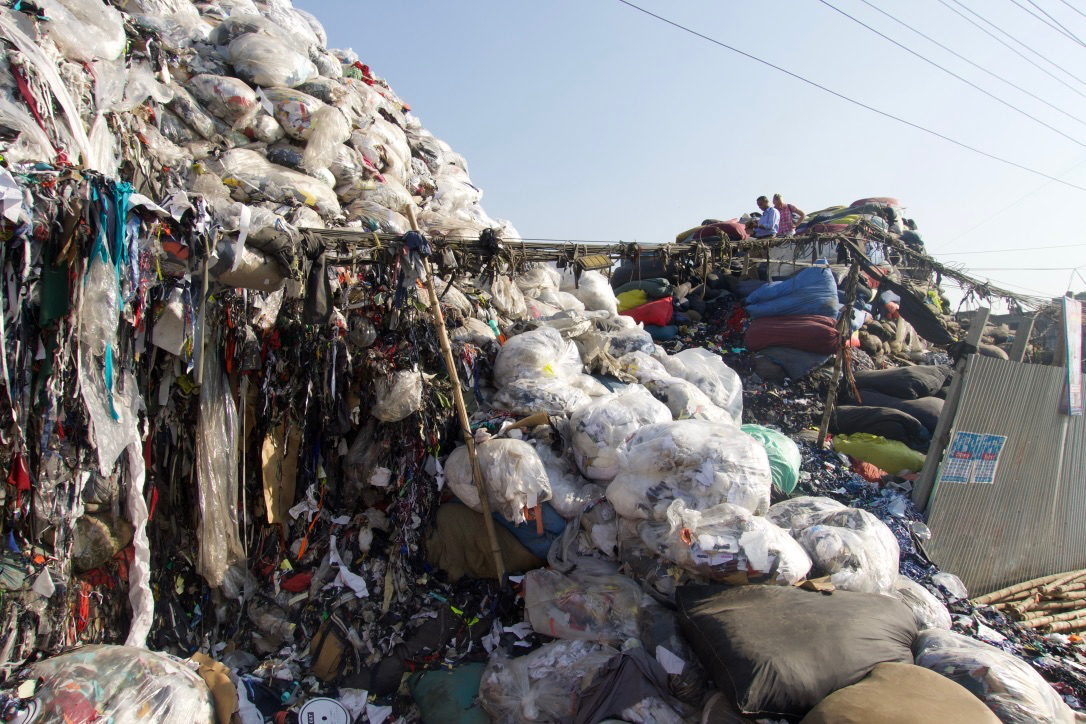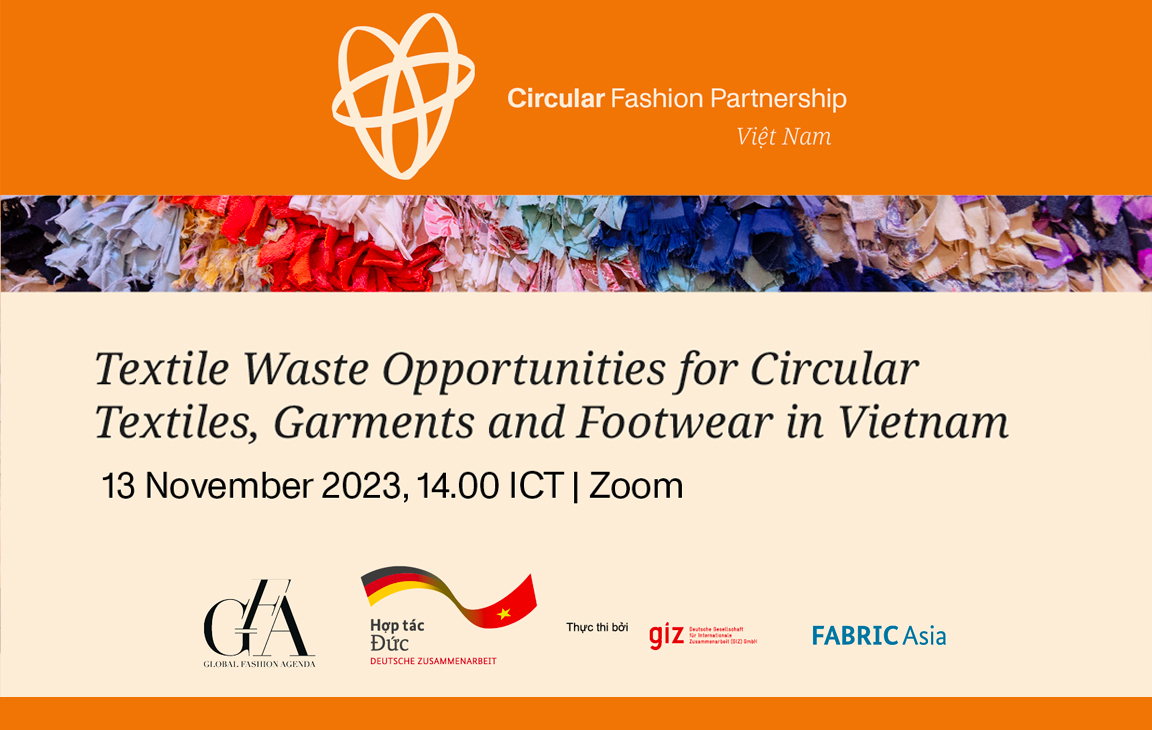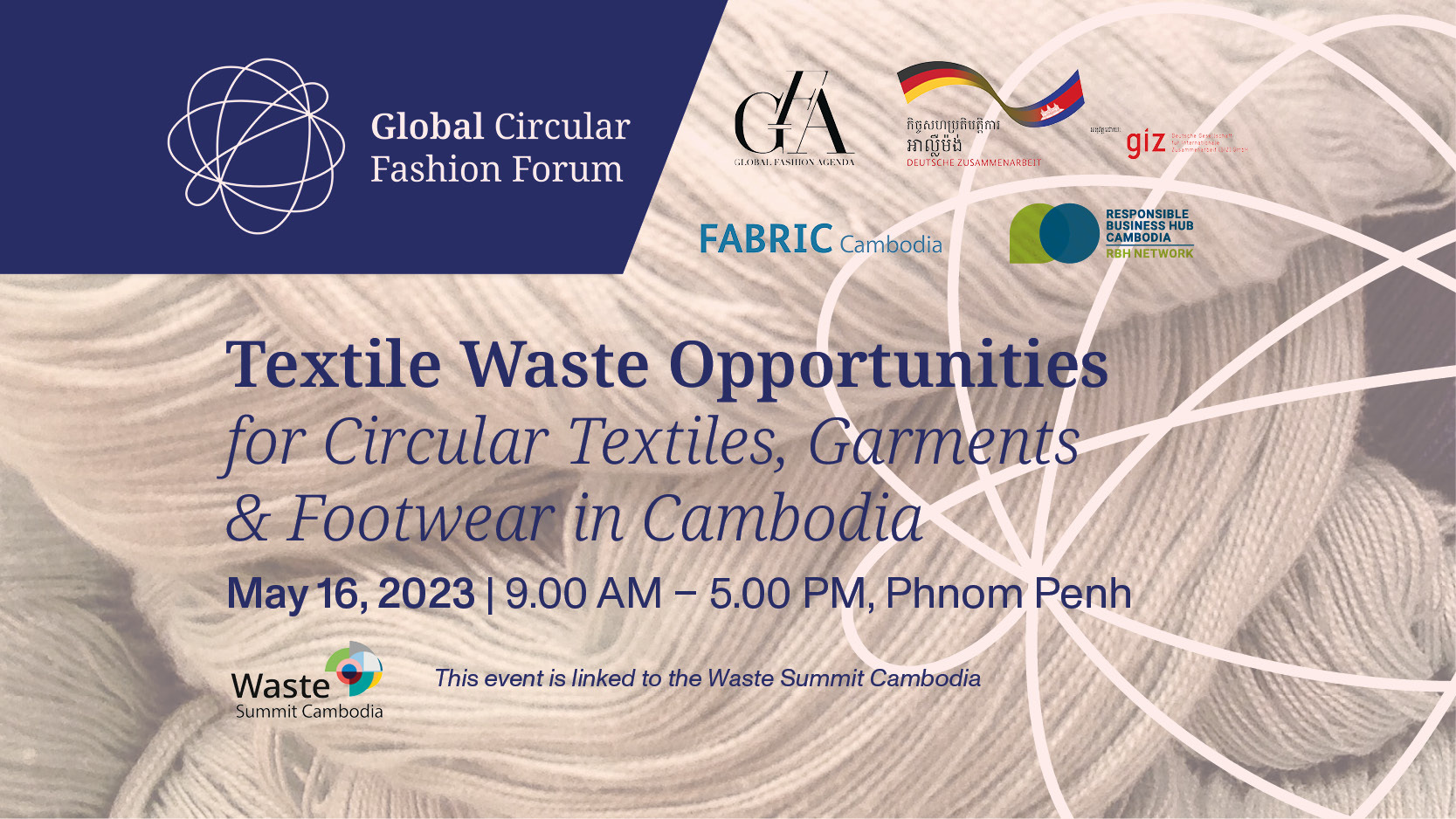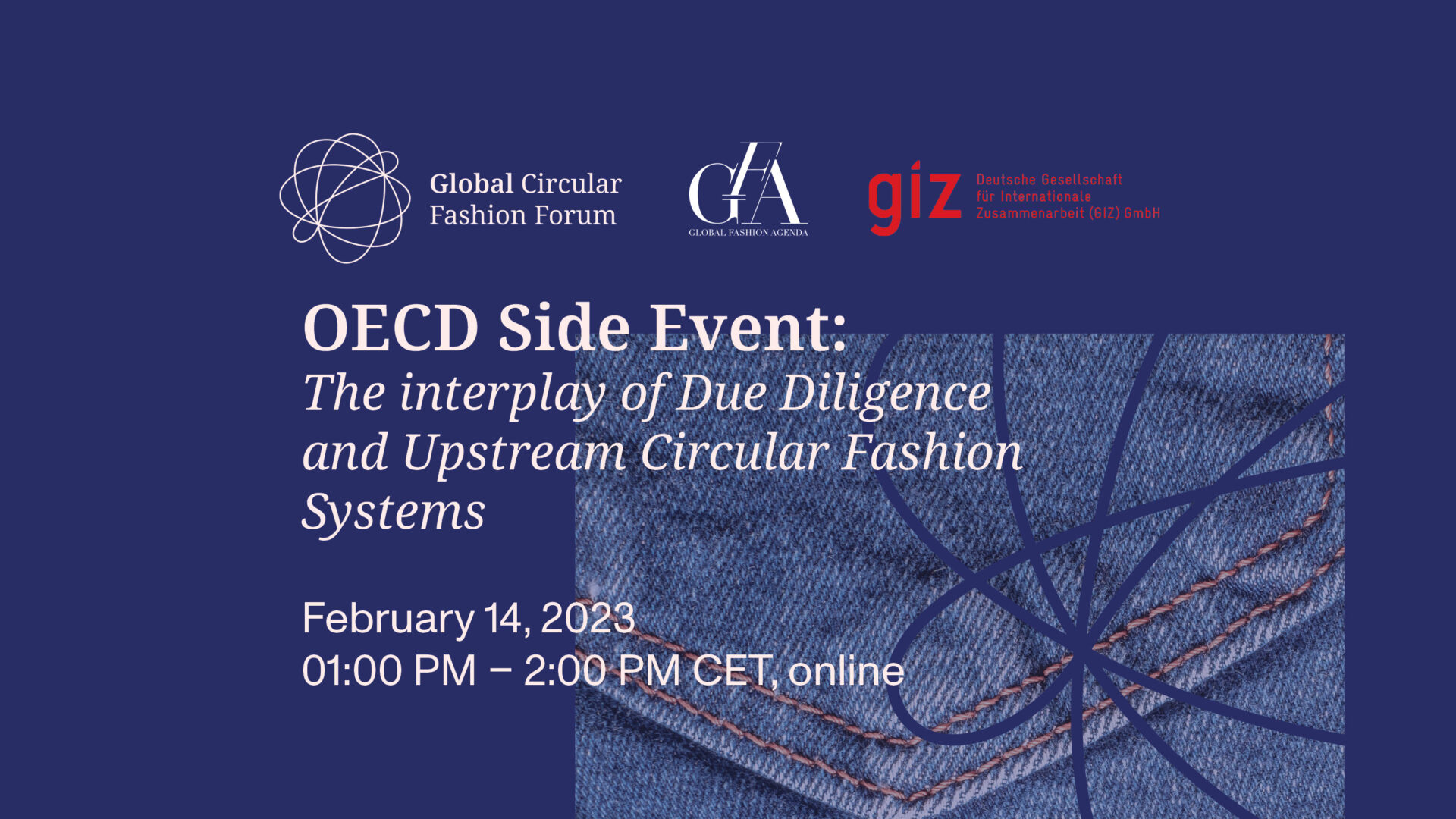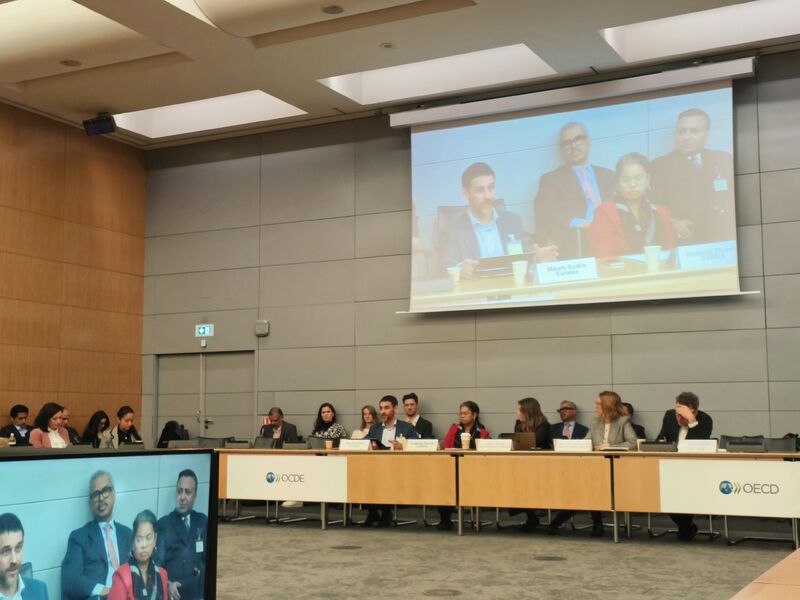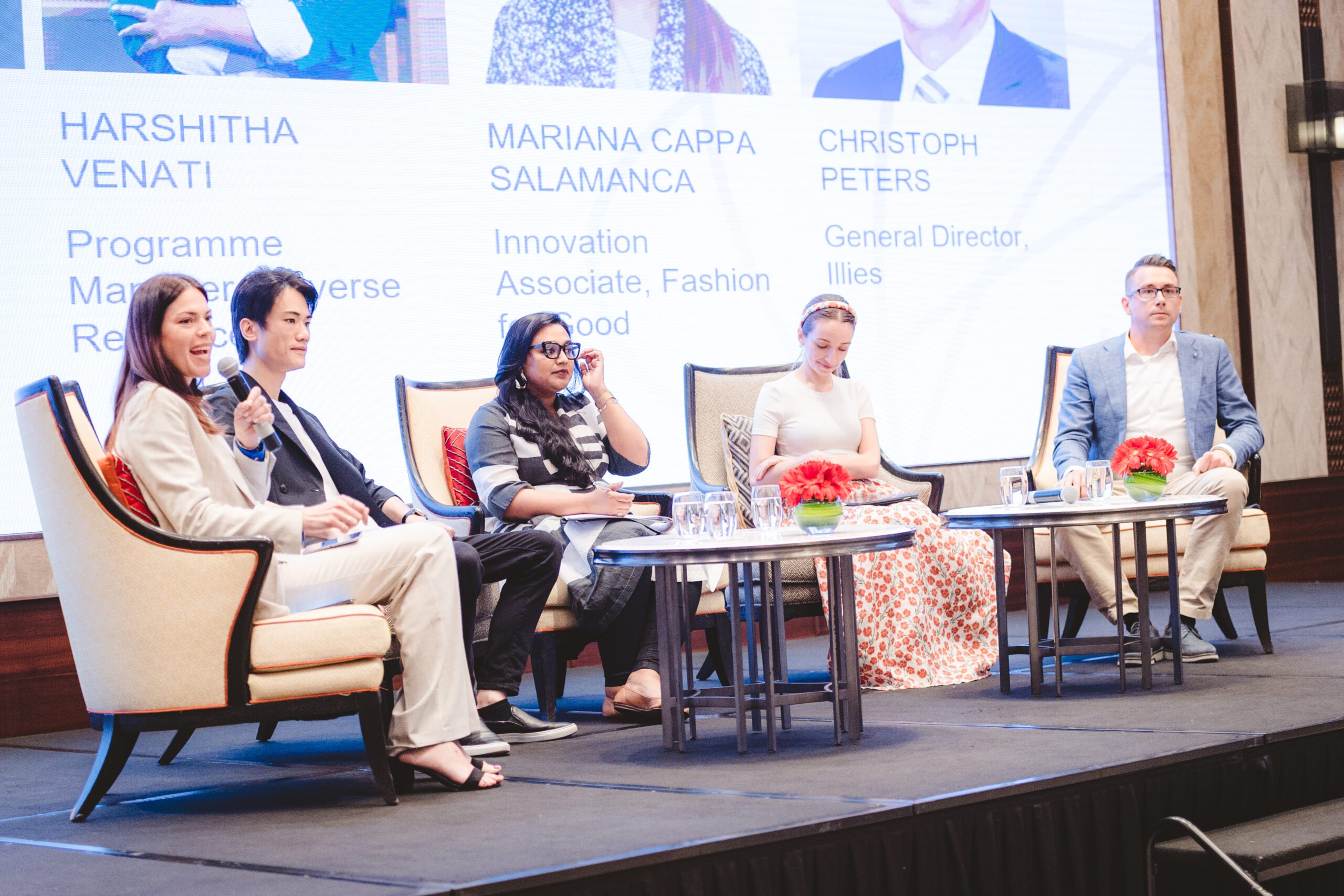What is the Circular Fashion Partnership?
The Circular Fashion Partnership is a cross-sectoral initiative to support the development of effective circular fashion systems in textile, garment and footwear manufacturing regions, by capturing and recycling post-industrial fashion waste. The partnership seeks solutions to maintain the highest possible value output, following a waste hierarchy approach, and ultimately aims to accelerate textile-to-textile recycling to reintroduce ‘waste’ materials back into fashion products.
Currently active in Bangladesh and Cambodia, the partnership demonstrates shared responsibility by facilitating circular commercial collaborations between manufacturers, recyclers and fashion brands. A successful business case will demonstrate a decrease in textile waste and increase of recycled fibres, distributing value throughout the value chain and generating economic benefits in manufacturing regions. Furthermore, the partnership engages enabling actors to identify and address barriers for scale, such as supportive policy and investment.
Our approach
Brands, manufacturers, collectors, sorters and textile recyclers are eligible to participate in the Circular Fashion Partnership when they are committed to demonstrating shared responsibility for the valorisation of post-industrial textile waste.
In circular commercial collaborations, they work to segregate, digitally trace and recycle textile waste into the highest possible value output, ultimately being new fashion products.
Learnings from Circular Fashion Partnerships in different regions are anonymised and aggregated for dissemination with the broader industry and depending on the insights captured, engagement with enabling actors is pursued to establish a conducive environment for scaling of solutions, for instance with government representatives and investors.
Current focus areas
The Circular Fashion Partnership is currently activated in Bangladesh and Cambodia, with a forthcoming initiative in Vietnam.
The Circular Fashion Partnership (CFP) in Bangladesh was established in 2021 as an cross-sectoral initiative aimed at facilitating the growth of the recycling industry by effectively capturing and redirecting post-production fashion waste back into the production cycle, thereby contributing to the creation of new fashion products. This project is being implemented in close collaboration with the Bangladesh Garment Manufacturers and Exporters Association (BGMEA) and Reverse Resources, with the support of esteemed brand partners including H&M Group, Primark, United Colors of Benetton, Bestseller, Teddy Group, and OVS. Over the span of three years, CFP Bangladesh has successfully garnered the participation of more than 20 renowned brands and retailers, 85 manufacturers, as well as 36 waste management companies and recyclers.
As of the end of April 2023, the manufacturing partners involved in the project have registered an impressive 8,500 tons of waste on the Reverse Resources platform. Notably, approximately 40% of this waste has already been traced to esteemed high-end recycling companies.
Furthermore, in collaboration with our esteemed partners, we are actively engaging with the Bangladesh government to formalise the informal waste management sector. This includes introducing incentives and tax deductions to incentivise manufacturers to embrace recycling practices and establishing a comprehensive national policy for the sustainable management of post-production fashion waste.
The Circular Fashion Partnership (CFP) in Cambodia is dedicated to fostering collaboration and driving sustainable practices within the country’s fashion industry. Our primary objective is to promote circularity by actively reducing textile waste, implementing cutting-edge recycling technologies, and cultivating circular business models.
In collaboration with GIZ and the Responsible Business Hub, GFA hosted the inaugural Global Circular Fashion Forum (GCFF) event in May 2023. This event marked a significant milestone that perfectly aligns with our mission and objectives of introducing National Circular Fashion Partnerships to Cambodia and paved the way for expansion of the program to other apparel manufacturing countries.
The event served as a platform for participants to explore and deliberate opportunities within Cambodia’s dynamic fashion landscape. The dialogues and knowledge exchanges that took place during the GCFF event have proven invaluable, enriching our understanding of both the challenges and opportunities facing the Cambodian fashion industry. For comprehensive insights into this event, kindly follow this link.
Our dedication to fostering sustainability and collaboration in Cambodia extended beyond the GCFF. In June, we were honored to host a dedicated session at our Global Fashion Summit. This session further solidified our role as a catalyst for change and sustainability within Cambodia’s fashion sector.
Building upon the insights and connections established through these events, GFA and GIZ, are actively shaping a small-scale trial. This initiative engages select stakeholders, including esteemed fashion brands and manufacturers, with the shared objective of establishing a post-industrial textile waste collection and sorting centre in Cambodia.
This initiative represents a significant stride toward realizing our circularity objectives. We invite you to stay engaged for forthcoming information on this trial and the exciting prospects it offers for participation and expansion.
In the ever-evolving landscape of the Vietnamese apparel and footwear industry, the emergence of the Circular Fashion Partnership (CFP) represents a compelling and pressing necessity. This collaborative initiative is poised to address critical imperatives within the industry, with a primary focus on sustainability, recycling, and technological advancement. It’s worth noting that while this initiative is introduced in the context of Vietnam, its principles and objectives extend far beyond its borders and are relevant to CFPs worldwide.
Organized under the banner of the Global Circular Fashion Forum and in partnership with GIZ, we coordinated a webinar in November 2023 that extended an open invitation to all industry stakeholders interested in delving deeper into these transformative concepts.
During this webinar, GFA and GIZ outlined the opportunities, delved deeper into the Vietnamese apparel and textile industry landscape, and discussed the crucial initial steps for scoping the potential NCFP in Vietnam. This event represented the first step in building a community of like-minded individuals and organizations dedicated to revolutionizing the industry. Further details and valuable insights will be shared during the online event.
We look forward to your participation in this exciting initiative that has the potential to reshape the future of the fashion industry in Vietnam and beyond.
Sign up to the Circular Fashion Partnership newsletter to stay updated
Events & resources
Textile Waste Opportunities for Circular Textiles, Garments & Footwear in Cambodia
Global Fashion Agenda and GIZ are organising an event on May 16th in Phnom Penh, Cambodia, to explore opportunities of valorising textile waste and creating circular business models in fashion & footwear manufacturing that bring value to the region.
OECD Side Event: The interplay of Due Diligence and Upstream Circular Fashion Systems
GFA is hosting a side session at the OECD Forum on Due Diligence in the Garment and Footwear Sector that will discuss the connection between establishing circular fashion systems and mandatory Human Rights & Environmental Due Diligence.
Contact us
Do you want to help us accelerate circularity in the fashion industry? We welcome further cooperation with other industry organisations, brands, retailers, investors, grantors, solution providers, academia and more. We invite you to share thoughts with us.



